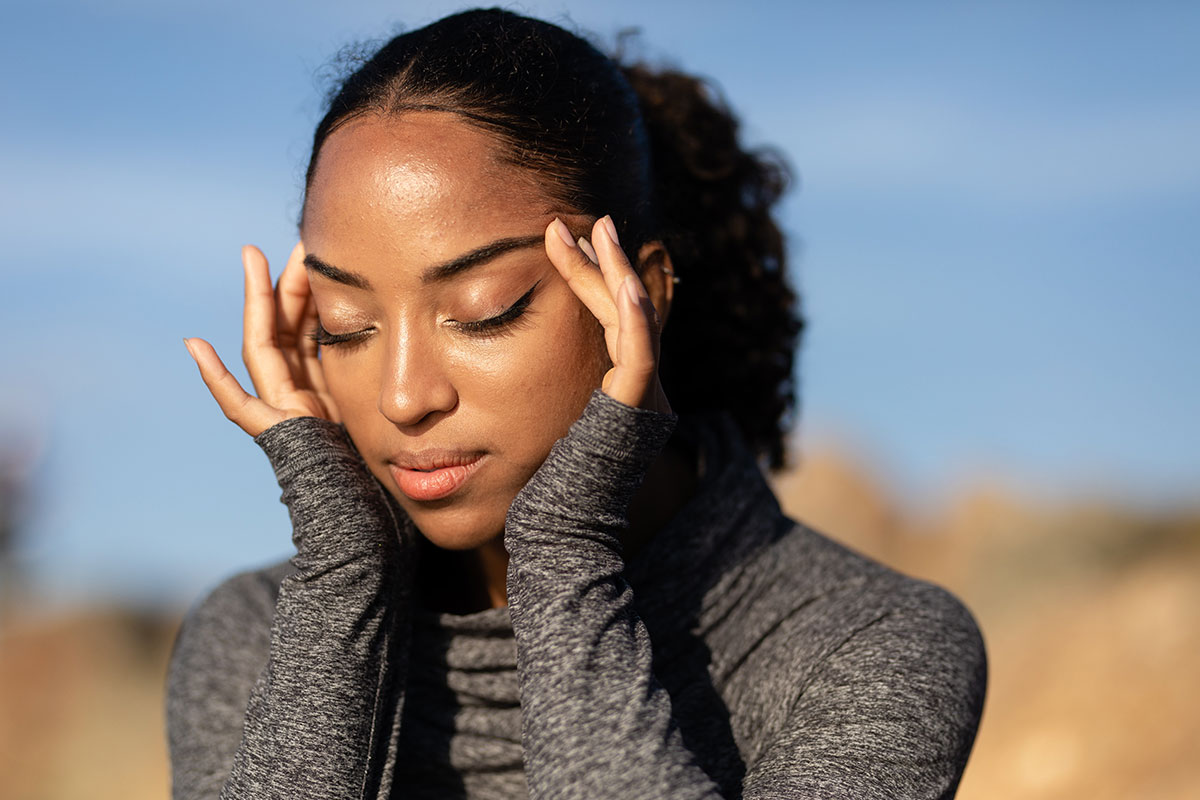Stress is one of the most common triggers for a migraine. The connection between stress and migraines is well-documented, making stress management a key aspect of alleviating the frequency and intensity of migraine. Let’s explore various techniques and approaches to managing stress, which may contribute to minimizing migraine occurrences.
Role of Stress in Migraines
Stress, whether emotional or physical, often triggers chronic headaches. It may cause changes in the body, such as fluctuations in hormones or muscle tension, which can contribute to the onset of headaches. Since stress cannot be completely eliminated, adopting techniques to manage it effectively plays a key role in addressing migraines.
Techniques to Manage Stress
Implementing stress management techniques can significantly reduce the frequency and intensity of migraines for many individuals.
- Mindfulness Practices
Mindfulness practices, including meditation, have been shown to be helpful in stress management. These methods focus on increasing awareness of thoughts, feelings, and external surroundings, which helps identify stress triggers. By recognizing these triggers early, individuals can take preventive measures.
Deep breathing exercises are another simple yet effective way to manage stress. These exercises promote relaxation by engaging the parasympathetic nervous system. Engaging the parasympathetic nervous system can help reduce overall tension and prevent the escalation of migraine symptoms.
- Maintaining a Healthy Lifestyle
A healthy lifestyle can play a fundamental role in stress and migraine management. Regular physical activity reduces stress by releasing endorphins, which act as natural mood elevators. Exercise routines that include aerobic activity or yoga can prove helpful in enhancing overall well-being.
Another key factor is a balanced diet. Certain foods may trigger migraines, so maintaining a nutritious and mindful diet can reduce stress and migraine episodes. Drinking sufficient water and avoiding excessive caffeine or processed foods are practical first steps.
By adopting these strategies, individuals can take proactive steps toward minimizing stress levels and promoting a healthier, more balanced lifestyle.
- Establishing a Routine
Creating a routine that incorporates stress reduction practices can also be helpful. Scheduling times for mindfulness, exercise, or relaxation can help reduce the impact of stress over time. These habits not only improve physical health but also strengthen emotional resilience to prevent migraines.
The Importance of Sleep Consistency
Establishing a consistent sleep schedule is key to minimizing stress-related migraines. Poor sleep or fluctuating sleep patterns can exacerbate both stress and headaches. Aim for seven to nine hours of sleep each night, and make sure to develop habits that promote restful sleep, such as limiting screen time before bed or using blackout curtains.
Regular bedtime and wake-up time can reinforce the body’s natural circadian rhythm. Incorporating relaxation techniques before sleep, such as meditation, deep breathing exercises, or reading, can also prepare the mind and body for rest. Avoid consuming stimulants like caffeine or nicotine in the hours leading up to bedtime, as these substances can delay the onset of sleep. Instead, think about drinking herbal teas with calming properties, such as chamomile or peppermint.
Explore Treatment Options for Migraine
Managing stress effectively has shown promise in reducing migraines, but each individual’s experience varies. Integrating mindfulness, a healthy lifestyle, and consistent sleep patterns can serve as a valuable framework for stress management. Explore treatment options and guidance from healthcare providers specializing in migraine and headache management.
- Zirconia Cap Price: Estimated Cost & Its Long-Term Benefits
- FREHF – The Revolutionary Future Of Human-Centered Technology!
- Adsy.Pw/Hb3 – Boost Your SEO And Drive More Traffic!
- Fitness Based Vacations By Timeshealthmage.com!
- TimesHealthMag Tips For Improving Sleep Quality – Expert Advice For Better Rest!


Leave a Reply